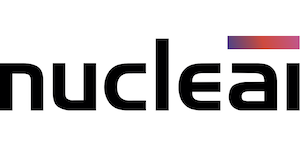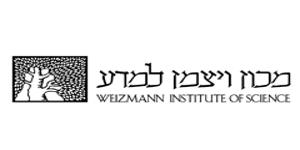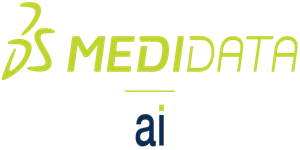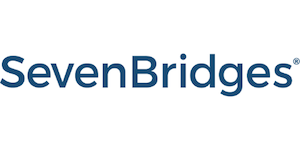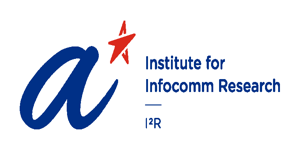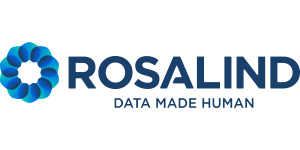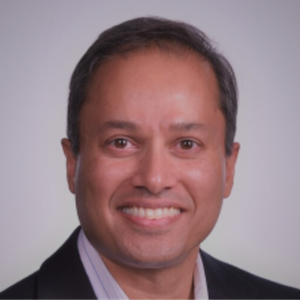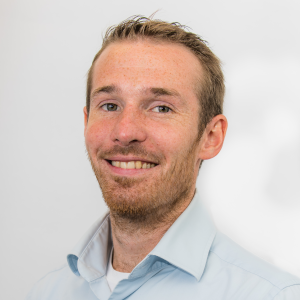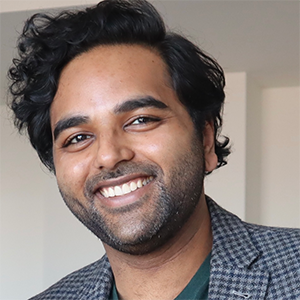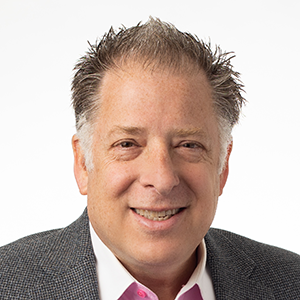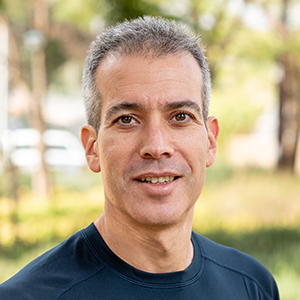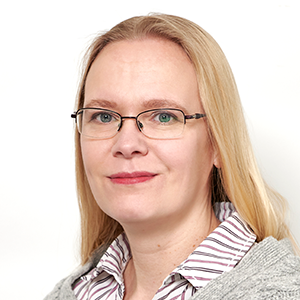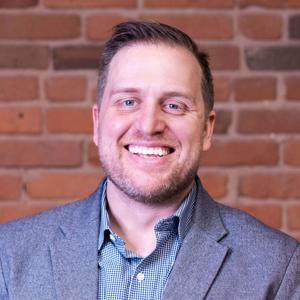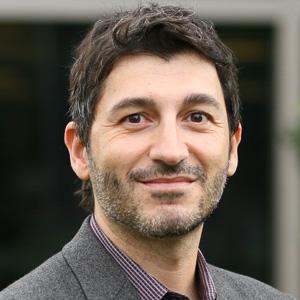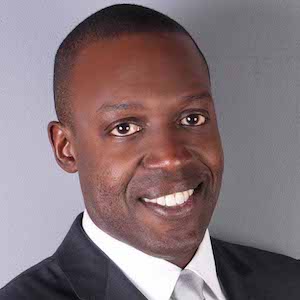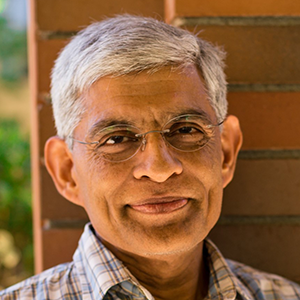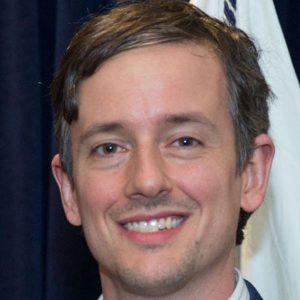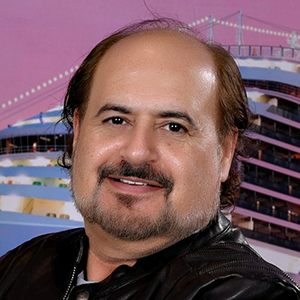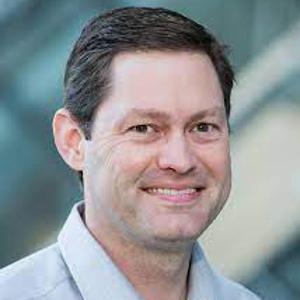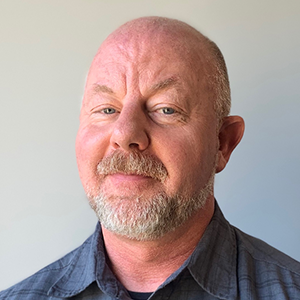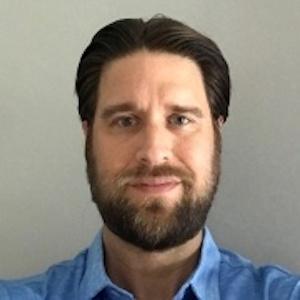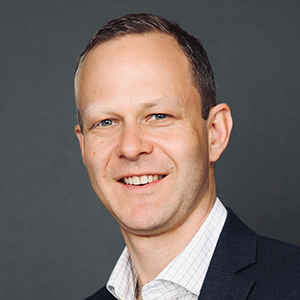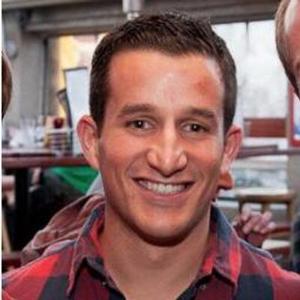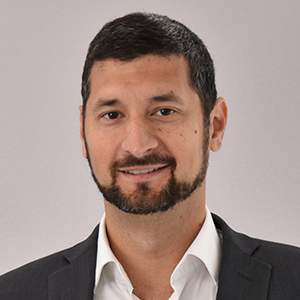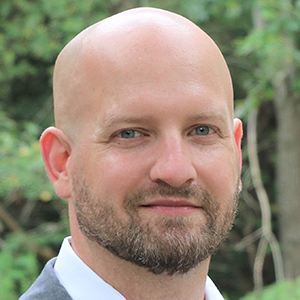The PMWC 2023 AI Company Showcase will provide a 15-minute time slot for selected AI companies to present their latest technologies to an audience of leading investors, potential clients, and partners. We will hear from companies building technologies that expedite the pre-clinical and clinical drug discovery and development process, accelerate patient diagnosis and treatment, or develop scalable systems framework to make AI and deep/machine learning a reality.
Confirmed Presenting Companies:
Speaker Profile
Biography
Bhavani Rao is currently a Technical Product Marketing Manager, responsible for product messaging and positioning at Pachyderm, a leader in data pipelining and MLOps. He has a diverse background, working with customers in Data Ops, DevOps, CI/CD, relational and NoSQL databases. A recent convert to the potential of AI/ML, Bhavani is passionate about technology and how it can be leveraged to solve customer problems. Throughout his career, Bhavani has promoted these learnings and best practices at numerous industry gatherings. He has a B.S. degree in Operations Research from Indiana University and an MBA from Columbia University.
Talk
AI and Data Sciences Showcase:
Pachyderm
Pachyderm enables data engineering teams to automate complex pipelines.
Applying ML: Processing Radiology Images at Scale
This session will discuss how to apply Deep Learning concepts to process petabytes of radiology images.
Speaker Profile
Biography
Tim is a tech entrepreneur from the Cambridge Cluster, passionate about using big data and AI to accelerate treatments for rare diseases. He is Co-Founder and Chief Executive of Healx, the AI powered, patient-inspired tech company, accelerating the discovery and development of rare disease treatments at scale. As CEO of Healx, Tim has been listed in The Sunday Times Maserati 100 list in 2019, was named as "one to watch" in The Telegraph’s Top 50 Most Ambitious Business Leaders in 2020 and was selected as a member of the Forbes Technology Council in 2022. Tim is also the Co-Founder and Trustee of the Cambridge Rare Disease Network (CRDN). Prior to Healx and CRDN, he obtained his PhD at the University of Cambridge in the field of Biophysics and Neuroscience, developing nanobody technology for Parkinsons disease.
Talk
AI and Data Sciences Showcase:
Healx
Healx combines frontier AI technology with deep drug discovery and development expertise to accelerate the pace, increase the scale and improve the chance of success of rare disease treatment development.
Pioneering the Next Generation of Drug Discovery for Rare Disease
Hear how Healx are developing a new approach to drug discovery for rare diseases.
Speaker Profile
Biography
Mark Wittenberg is an entrepreneur in medical image processing and the application of AI methods to radiology. He has deep experience in the lab-to-market translation of AI models covering unmet clinical needs in oncology. He has worked to enable new AI technologies for research and clinical use at institutions such as Mass General Hospital, Mayo Clinic, and Duke. He earned his MBA at UCLA, and BA in Economics at Wesleyan University.
Talk
AI and Data Sciences Showcase:
QUIBIM
QUIBIM provides an AI platform focused on converting medical images into meaningful data. The company has a portfolio of accurate quantitative imaging solutions across oncology disease areas.
AI and Medical Imaging for Innovation in COVID-19
Imaging AI to optimize clinical and research outcomes.
Speaker Profile
Biography
Prior to founding OneThree, Dr. Madhukar obtained his PhD from Weill Cornell, where his research focused on designing new machine learning architectures for drug discovery. During this time he authored 40+ scientific publications in the fields of machine learning, drug discovery, and precision medicine. His work has led to the development of new AI prediction methods, the discovery of a novel class of cancer therapeutics, and the start of new clinical trials. Dr. Madhukar is an awardee of the PhRMA informatics fellowship, was named one of Forbes “30 under 30” in Healthcare, and was named as one of the top 100 AI Leaders in Drug Discovery and Advanced Healthcare by Deep Knowledge Analytics.
Talk
AI and Data Sciences Showcase:
OneThree Biotech
OneThree Biotech has developed an AI platform to identify new therapeutic opportunities (e.g. novel cancer targets, genetic interactions, or disease mechanisms) that were missed by current techniques. From this they're building a pipeline of first-in-class cancer therapeutics
The ATLANTIS Platform for Novel Target Discovery
How the ATLANTIS platform accelerates the discovery and derisking of novel disease targets
Speaker Profile
Biography
Ranit is an AI researcher and expert with two decades of handson experience. She works to advance Pangeas machinelearning tumor intelligence platform, enabling deeper understanding of how a tumor would respond to therapy. Prior to her role with Pangea, Ranit worked at IBM Research AI where her team developed Project Debater, the first AI system capable of debating humans on complex topics. In February 2019, the AI system won the Edison Award in Social Innovation Artificial Intelligence. Ranit continued at IBM Research managing Natural Language Processing (NLP) teams before transitioning to become CTO of Pangea. For almost a decade before joining IBM, Ranit served as the Vice President of R&D at Rosetta Genomics (NASDAQ: ROSG). Rosetta Genomics developed microRNAbased molecular diagnostics. The company won the Wall Street Journal Technology Innovation award in 2008 while Ranit led the R&D efforts, including directly supervising all computational biology, software development and IP.
Talk
AI and Data Sciences Showcase:
Pangea Biomed
Pangea Biomed created ENLIGHT, the world’s most advanced multi-cancer, multi-therapy response predictor. By combining machine learning and deep RNA analysis, the company analyzes tumor molecular signatures to uncover cancer vulnerabilities missed by standard molecular profiling, for effective personalized cancer care and accelerated drug development.
Using AI to Democratize Precision Oncology
How genetic interaction analysis advances the utility and accessibility of precision oncology.
Speaker Profile
Biography
Dr. Grammer is an internationally recognized scientist and successful entrepreneur, having founded and managed AMPEL successfully for over 5 years. Dr. Grammer was elected to the class of 2021 for SIBF (Society of International Business Fellows), an organization of 1,400 individuals in 45 countries worldwide. She was also awarded a Virginia SBIG grant for AMPEL's first investment round. She is a second term board member of Virginia Bio.Before co-founding AMPEL in 2013, Dr. Grammer spent over 20+ years in genomics and managed more than 15 National Institute of Health (NIH) scientific teams and a highly productive NIH laboratory. Dr. Grammer received multiple awards for her team's work comparing genes expressed in patients compared with healthy individuals, including the prestigious NIH Director's Award as well as mentoring awards from the American Association of Immunologists. She has published over 75 articles on her scientific research.
Talk
AI and Data Sciences Showcase:
AMPEL BioSolutions
AMPEL is a precision medicine company with a development pipeline of CLIA-certified gene expression tests for blood or tissue samples that determine disease status, identify molecular pathway and predict best drugs. Genomic platform, bioinformatics, RNA analytics and ML/AI algorithms covered by patents & are disease agnostic.
LuGENE Px for Lupus
AMPEL’s LuGENE® Px blood test evaluates Lupus disease status, identifies molecular pathways and predicts drug options. Filed patents protect AMPEL’s genomic platform, bioinformatics, RNA analytics and machine learning algorithms as well as disease specific applications in oncology, autoimmunity and infectious disease.
Speaker Profile
Biography
Kenneth J Bloom, MD, FCAP is the Head of Pathology at Nucleai. He brings more than 35 years of clinical experience in pathology, oncology, telemedicine, and bioinformatics. Dr. Bloom has held a myriad of leadership positions including President and Head of Oncology & Immunotherapy for Human Longevity Inc., Chief Medical Officer for In Vitro Diagnostics at GE Healthcare, and Chief Medical Officer of Clarient. Prior to his industry experience, Dr. Bloom spent 15 years at Rush Medical Center holding various appointed positions including Director of Laboratory Operations, Director of Immunohistochemistry and Chief Information Officer of the Rush Cancer Institute. Dr. Bloom has been the principle investigator of more than a dozen clinical trials and has served as an advisor to numerous Pharmaceutical and Bio-Technology Companies. He received M.D. from Rush Medical College and his B.A. from Grinnell College.
Talk
AI and Data Science Showcase:
Nucleai
Nucleai is an AI-powered spatial biology company with a mission to transform drug development and clinical treatment decisions by unlocking and analyzing the valuable information in the pathology data.
AI driven spatial biology, the next NGS
AI driven spatial biology will revolutionize our understating of tumor biology.
Speaker Profile
Biography
Eran Segal heads a multi-disciplinary team of computational biologists and experimental scientists in Computational and Systems biology. His research focuses on Microbiome, Nutrition, Genetics, and their effect on health and disease. His aim is to develop personalized medicine based on big data from human cohorts.
Prof. Segal published over 200 publications, and received several awards and honors for his work. During the COVID-19 pandemic, Prof. Segal developed models for analyzing the dynamics of the pandemic and served as an advisor to the government of Israel.
Before joining the Weizmann Institute, Prof. Segal held an independent research position at Rockefeller University, New York.
Education: Prof. Segal was awarded a B.Sc. in Computer Science summa cum laude in 1998, from Tel-Aviv University, and a Ph.D. in Computer Science and Genetics in 2004, from Stanford University
Talk
AI and Data Science Showcase:
Weizmann Inst. of Science
Pheno.AI manages The Human Phenotype Project with a mission to make accessible the world’s largest collection of deep-phenotype multi-omics datasets to improve human health. We do so by collecting and enabling others to collect, organize, analyze and make accessible these datasets
Personalized medicine based on deep human phenotyping
The technological and procedural building blocks, pitfalls and lessons learnt of building a deep phenotyped, multi-omics cohort
Speaker Profile
Biography
Anni is an expert of genetic research software and data management. Her main responsibilities at BC Platforms are science communications, translational research projects, and solution design.
Before joining BC Platforms, Anni worked as a researcher at Neuroscience center, University of Helsinki. During her Phd she specialised in cross-disciplinary research projects, and acquired knowledge and skills in biochemistry and physiology.
Anni holds a PhD in Animal Physiology, Molecular Neurobiology from Univeristy of Helsinki and a MsC in Biochemistry, Chemistry from University of Eastern Finland.
Talk
AI and Data Sciences Showcase:
BC Platforms
BC Platforms is a global leader in building data networks for the life sciences industry and provides versatile technology platforms for personalized medicine, accelerating the translation of innovations into clinical practice.
First Global federated learning network secured with FHE
A novel environment for leveraging federated healthcare data for purposes of complex population analytics and machine learning.
Speaker Profile
Biography
Michael Wilson has over a decade of experience in bioinformatics and metabolomics research with a background in Biological and Computer Sciences. He has co-authored 19 scientific publications and one textbook, as well as participated in two international data exchange committees for bioinformatics data formats. As DrugBanks’s CEO and co-founder, Michael leads the strategic direction, operations, management, and business development teams. His guidance and vision keep the DrugBank team motivated and striving to deliver even more innovative products.
AI and Data Science Showcase:
DrugBank
DrugBank is the world’s first intelligent and comprehensive drug knowledge platform. With the help of artificial intelligence, our expert team authors, verifies, and structures all of the latest biomedical information so that it can be used to its fullest potential.
Speaker Profile
Biography
Costas has over 20 years of experience in research, development, and delivery of scientific information systems in the medical device, clinical research, and pharmaceutical domains with an emphasis on biomedical imaging. Costas joined Flywheel from Genentech, where he led the development of the Roche Global Imaging Platform, based on FAIR principles, which enables at-scale image data storage, ingestion, curation, and analysis.
Talk
AI and Data Sciences Showcase:
Flywheel
Flywheel is the biomedical research data management platform powering healthcare innovation by accelerating collaboration, enabling machine learning, and streamlining data aggregation, curation and management. By leveraging cloud scalability and automating research workflows, Flywheel helps organizations scale research data and analysis, improve collaboration and accelerate discoveries.
Improving AI with Diverse Datasets and Innovative Collaboration Tools
Flywheel Exchange provides a new platform to facilitate collaborations between AI researchers, scientists, clinicians, and commercial organizations.
Speaker Profile
Biography
Bryant has enjoyed nearly 25 years in the clinical research domain, mostly comprised of industry leadership in clinical data management and clinical operations. Bryant has led workstreams in the identification of innovative and transformative processes and tools for clinical data environments and supported departments in clinical data standards and HEOR research. Bryant is currently the Senior Director, SCA Go-To-Market/Strategy, where he ensures seamless coordination and oversight between commercialization, marketing, strategy and corporate development operations for external control arm solutions. Bryant holds a Master of Science in Epidemiology from Columbia University.
Talk
AI and Data Sciences Showcase:
Medidata
Medidata AI serve 1,300 customers and partners worldwide and empower more than 150,000 certified users every day to create hope for millions of patients.
Methods to Accelerate Technical and Regulatory Success
Rigorous study of historic patient-level clinical trial data and real-world data may accelerate drug development.
Speaker Profile
Biography
Before starting Omics Data Automation, Gans was the chief architect of several generations of multi-core Xeon processors (2001 – 2013) starting with the first multicore server which resulted in more than 92% server market share for Intel. Starting 2014, he focused on Genomics and Precision Medicine driven by “Big Data”. As Director of the Precision Medicine group at Intel, he led the “Collaborative Cancer Cloud” a federated cloud platform for cancer research, collaborating with OHSU (Oregon Health Science University, OR), Broad Institute, ISTC@MIT and various Cancer medical centers including Dana Farber Cancer Institute in Boston and OICR (Ontario Institute for Cancer Research) in Toronto. He also led Heterogeneous computing group and three Intel collaborations with academic centers at UC Berkeley, Technion Israel and UCLA in this area.
Talk
AI and Data Sciences Showcase:
Omics Data Automation
Omics Data Automation, Inc. (ODA) provides a comprehensive platform solution for ingestion, harmonization and analysis of multimodal healthcare data including genomic and images files. ODA's platform integrates seamlessly with major EMR systems and research platforms.
Empowering Precision Medicine Through Multimodal Data
A novel approach to data integration, federation and causal inference.
Speaker Profile
Biography
Jack leads the Scientific Center of Excellence, with focus on sustainable innovation, developing interoperability standards, democratizing access to research data, scientific leadership, and ultimately advancing the potential of genomics and health data to improve health. His team has developed advanced research ecosystems to help diverse stakeholders realize return on the investments that they have made in data generation and analysis environments. Jack serves as PI or co-I on multiple large projects and co-chairs the NIH Cloud Platform Interoperability Effort to help researchers bring together data and tools from NCI, NHLBI, Common Fund, NHGRI, and others. Jack’s training spans engineering and neuroscience; his academic research area was machine learning applied to sensory (vestibular) and motor (locomotion, reaching) neuroprosthetics.
Talk
AI and Data Sciences Showcase:
Seven Bridges
Seven Bridges is the industry-leading unified bioinformatics solutions company accelerating precision medicine by enabling the understanding of biomedical data. Our platform, analytic tools, and services expertise are driving discovery and drug development at the world’s leading academic, biotechnology, government, hospitals, and pharmaceutical entities.
Powering Precision R&D
Opportunities and challenges of revealing insights from complex multidimensional data.
Speaker Profile
Biography
Dr. Martin Stumpe serves as the Chief of AI at Tempus, where he leads the development of AI algorithms from NGS and digital pathology to improve clinical context and decision-making for better patient care. Prior to Tempus, Dr. Stumpe founded and led the Cancer Pathology project at Google, which uses artificial intelligence to increase the accuracy in image-based cancer detection and grading. Earlier in his career, Dr. Stumpe was part of the Kepler team at NASA Ames Research Center; and before that, he was a postdoctoral researcher at Stanford University focusing on molecular dynamics simulations to study chaperone-induced protein folding. Dr. Stumpe holds a PhD in Computational and Theoretical Physics from the Max Planck Institute for Biophysical Chemistry in Goettingen, Germany.
Talk
AI and Data Sciences Showcase:
Tempus
Tempus is a technology company advancing precision medicine through the practical application of artificial intelligence in healthcare. With one of the world’s largest libraries of clinical and molecular data, Tempus enables physicians to deliver personalized patient care and accelerates the development of optimal therapeutics.
Actionable AI: Data-Centric Decision-Making in Clinical Research
Impact of multimodal AI algorithms on patient diagnosis, prognosis, and clinical trial matching
Speaker Profile
Biography
A scientist in the Cybersecurity Department of the Institute for Infocomm Research (I²R), Benjamin’s research focuses on privacy-preserving technologies such as federated learning, differential privacy and homomorphic encryption, as well as post-quantum cryptography.
Leveraging his expertise in these technologies, he has been working with public agencies and companies in Singapore to develop solutions that enable secure collaborative ML and data analytics without compromising personal data privacy. He is also part of the A*STAR’s Fides team, endeavouring to proliferate privacy-preserving technologies to industry through R&D partnerships with organizations facing RWD privacy challenges. Benjamin continues to challenge his team and himself through participation in renowned competition and conferences. One of it was the IDASH Privacy and Security Workshop 2021 where his team won the 1st place (Track II) with their solution applying Homomorphic Encryption-based techniques for secure strain classification of 8,000 genomes. He authored a total of 18 publications with 1 patent awarded.
Talk
AI and Data Sciences Showcase:
A*STAR - I²R
Institute for Infocomm Research create digital world innovations for a thriving and resilient Singapore harnessing AI, Connectivity and Cyber Security.
First Global federated learning network secured with FHE
A novel environment for leveraging federated healthcare data for purposes of complex population analytics and machine learning.
Speaker Profile
Biography
Dr. Randal Goomer Leads the AI/ML practice in HealthCare and LifeSciences at AWS. His goals are to accelerate and empower the global Pharma companies in realizing business value across the value chain. He has led projects in Precision Medicine, Genomics, Gene-therapy, Pharma Biologics Process analytics and novel Biomarker discovery using Machine intelligence and deep/federated learning. Prior to joining AWS, Dr. Goomer led GE-HealthCare Data Science teams in precision medicine and bio-process analytics. Dr. Goomer has published numerous articles and successfully filed several patents in the field.
Talk
AI and Data Sciences Showcase:
Amazon Web Services
With over 240 tools and services, AWS leads the industry with the deepest and widest Machine Learning capabilities for HealthCare and LifeScience Use-cases.
Accelerating Business Value with AWS ML stack
How AWS is creating value in Pharma and HealthCare space with data driven AI & Machine Learning
Speaker Profile
Biography
Kenneth Bloom, MD, FCAP is the Head of Pathology at Nucleai. He has over 35 years of experience in pathology, oncology, telemedicine, and bioinformatics.
Dr. Bloom has held several leadership positions, including CMO at REALM IDx and President and Head of Oncology & Immunotherapy for Human Longevity Inc, CMO for In Vitro Diagnostics at GE Healthcare, co-founder, CMO and Medical Director of Clarient.
Prior to his industry experience, he spent 15 years at Rush Medical Center, where he helped design and implement the first telepathology system. He has also been a Clinical Professor of Pathology at the University of Southern California.
Dr. Bloom has been the principal investigator on over a dozen clinical trials and has served as an advisor to many pharmaceutical and biotechnology companies.
He received his M.D. from Rush Medical College and his B.A. from Grinnell College.
Talk
AI and Data Sciences Showcase:
Nucleai
Nucleai developed an AI-powered pathology-based biomarker discovery platform to unlock the power of spatial biology from pathology images. Leveraging computer vision and deep neural networks to structure and characterize tissue and cell architecture, identifying spatial characteristics that predict response to therapy and inform treatment decisions.
AI driven spatial biology, the next NGS
There is a wealth of data ready to be unlocked from pathology slides
Speaker Profile
Biography
Tim Wesselman is the founder and Chief Executive Officer of Rosalind, a life sciences company revolutionizing the way we visualize, store and interpret multi-omic data in drug discovery, infectious disease research and translational medicine. He is a graduate of multiple programs in Finance, Accounting, Investor Relations and Strategic Marketing from Columbia University, Rice University and University of Michigan, as well as obtaining a B.S. Mechanical Engineering degree from Texas A&M University. Wesselman believes that software and data science innovation is the key to providing scientists more control over their own research, enabling them to unlock the deeper mysteries of biology.
AI and Data Sciences Showcase:
Rosalind, Inc
ROSALIND is the leading collaborative research platform for knowledge management and multi-omic data analysis. As a secure unified data hub for sequencing and multiplex technologies, ROSALIND combines deep interpretation and interactive visualization for spatial, single-cell, RNA, NanoString, and clinical data.
Making Data Human for Precision Medicine
Overcoming data complexity and resource limitations to accelerate R&D with state-of-the-art transcriptomics and epigenetics
Speaker Profile
Biography
Jeremy Woods is an expert on genomic medicine with a special focus on generating big data solutions to clinical problems. As a clinical geneticist he has participated in innovative projects such as the Undiagnosed Diseases Network and Project Baby Bear that revolutionized the way medicine is practiced. His current work focuses upon the utilization of phenotypic and genotypic big data to innovate pediatric health care.
Talk
AI and Data Sciences Showcase:
Valley Children's Healthcare
Seventy years ago, Valley Children's Healthcare began as the vision of five civic-minded women who saw the need for a dedicated pediatric hospital in Central California. Since then, we have grown from a 42-bed hospital to one of the largest pediatric healthcare networks in the country.
Temporal Next Generation Phenotyping
This presentation discusses innovations in quantitative phenotyping and adds time as a novel dimension in the analysis.
Speaker Profile
Biography
Mark started as a developmental biologist working on transcription factors controlling flower shape and color. Then came to America and worked at Berkeley and Stanford on genes no one but maize people really care about. He moved from Academia to Industry just as the human genome was published and since then he has worked for several genomics related companies ranging from startups to global pharma. Most recently Thermofisher on FDAapproved diagnostic sequencing, DNAnexus on cloud genomics, and now at Tag.bio implementing question to answer analytics.
Talk
AI and Data Sciences Showcase:
Tag.bio
Tag.bio is a data analytics company that implements a cloud-based Data Mesh architecture for Healthcare and LifeSciences organizations. Our platform is implemented within your secure cloud and provides easy access to self-service analysis via a mesh of data products.
Faster discovery via Data Mesh for patients and clinical trials
Applying a modular architecture for fast, scalable, and useful multi-modal data products to Health care and LifeSciences.
Speaker Profile
Biography
Dr. Gessner has a background in cheminformatics and network science. He worked in the pharma, biotech, and chemical information industries over the last 20 years with a focus on graph technologies for the past 10 years. His current work focuses on the application of graph analytics and graph AI approaches over large distributed heterogeneous knowledge graphs incorporating multi-omics data, to support advances in precision medicine. As leader of the Health and Life Sciences Solutions team at Katana Graph, he engages with pharma, hospitals, and research institutions to educate and inform on the applications of modern graph data science techniques to problems in the health and life sciences that benefit from representing data as large distributed networks.
Talk
AI and Data Sciences Showcase:
KATANA GRAPH
Katana Graph is an AI-powered graph intelligence company providing faster and more accurate insights on massive and complex data. Our Graph Intelligence platform fuses a combination of novel graph algorithms and graph neural network architectures to rapidly identify business insights at unmatched scale and performance.
Transforming Healthcare with Graph Intelligence
Katana Graph and Intel have created a graph intelligence platform with applications to precision medicine.
Speaker Profile
Biography
Rafael leads Genialis company’s effort to model patient biology to realize the promise of precision medicine and therapeutic discovery. He spent nearly 20 years in biomedical research prior to Genialis, publishing on the evolution of innate immune systems, bioengineering of microbes, and genetics of development. He has also nurtured a specialty in developing software for high-throughput molecular design and analyses, co-inventing the j5 DNA assembly design automation tool (which has since been commercialized by TeselaGen Biotechnology). Rafael attended Dartmouth College and then Yale University, where he was an NSF Graduate Research Fellow. He went on to postdoctoral training in Jay Keasling’s synthetic biology group at Lawrence Berkeley National Laboratory, Joint BioEnergy Institute (JBEI), followed by a National Library of Medicine Keck fellowship in Biomedical Informatics at Baylor College of Medicine. In his free time, Rafael enjoys cooking and rock climbing, and raising heirloom tomatoes and two precocious children.
Talk
AI and Data Sciences Showcase:
Genialis Inc
Genialis is a computational precision medicines company unravelling complex biology to find new ways to address disease. ResponderID™, Genialis’ clinical biomarker discovery platform, defines, models, and validates actionable biomarkers and optimally positions novel drugs to accelerate translational research and clinical development.
Machine-Learning for Clinical Biomarker Discovery
How can we achieve clinic-ready biomarker algorithms from messy and small patient data sets? Come see.
Speaker Profile
Biography
Aaron Friedman is the principal product manager for Amazon Omics. In this role, he is responsible for listening to customers, defining requirements, and ensuring that Amazon Web Services (AWS) helps customers advance scientific discovery and precision medicine. Prior to this role, Friedman spent over five years in AWS healthcare and life sciences solutions (HCLS) architecture leadership roles, spending four years as the HCLS tech lead for the AWS Partner Network and then a year and a half as the HCLS tech lead for startups. In those roles, he also built many of the original architectures and patterns for genomics on AWS. Prior to AWS, Friedman was the first technical employee at Human Longevity, a biotech startup delivering omics-guided healthcare solutions. He received his Ph.D. in Biomedical Sciences at UCSD and graduated summa cum laude with a BS in Biomedical Engineering at Washington University in St. Louis.
AI and Data Sciences Showcase:
Amazon Web Services (AWS)
AWS is the trusted technology and innovation partner to the global healthcare and life sciences industry, providing unmatched reliability, security, and data privacy. To help organizations achieve business and technical goals, AWS provides cloud services and Partner solutions, used by thousands of customers globally.
Introducing Amazon Omics
Learn how Amazon Omics helps healthcare and life science organizations and their software partners advance precision medicine.
Speaker Profile
Biography
Dr. Ramanujam is an Associate Professor of Bioinformatics at the Karolinska Institute (Stockholm, Sweden). He has spent that last 10 years working on the development of novel methods in topological data analysis while completing postdocs in autoimmune disorders and mathematics, as well as competing a four year Assistant Professorship in epidemiology. This work has led to new techniques to both anonymize and analyze data, thereby providing a means for joint data sharing and analysis without exposing IP or risking regulatory noncompliance.These methods form the basis of founding DatAnon together with Professor Wojciech Chachólski of KTH The Royal Institute of Technology. The goal of DatAnon is to use its software platform to anonymize and jointly analyze data in order to identify patient responders in clinical trials and other datasets.
Talk
AI and Data Sciences Showcase:
DatAnon Corporation
Datanon means data anonymization. We have created a software platform based on geometrical methods which does two things very well: 1) anonymizes data for private data sharing and joint analysis and 2) determines patient responders.
Determining patient responders using anonymized geometrical methods
DatAnon anonymizes data and detects patient responders. Utility is demonstrated in Avelumb and public datasets.
Speaker Profile
Biography
Biomedical engineer, entrepreneur and dad to a little boy with the rare syndrome PFAPA who cofounded a company on a mission to bring better healthcare to rare disease patients around the world.
AI and Data Sciences Showcase:
TMA Precision Health
TMA brings better healthcare to our network of more than 3.5 million rare disease patients across the US and LATAM by helping them end their diagnostic odyssey, and in turn they’re helping us build the world’s largest rare disease database.
Access to rare disease patient data
Just imagine what you could do with access to high quality structured rare disease patient data.













